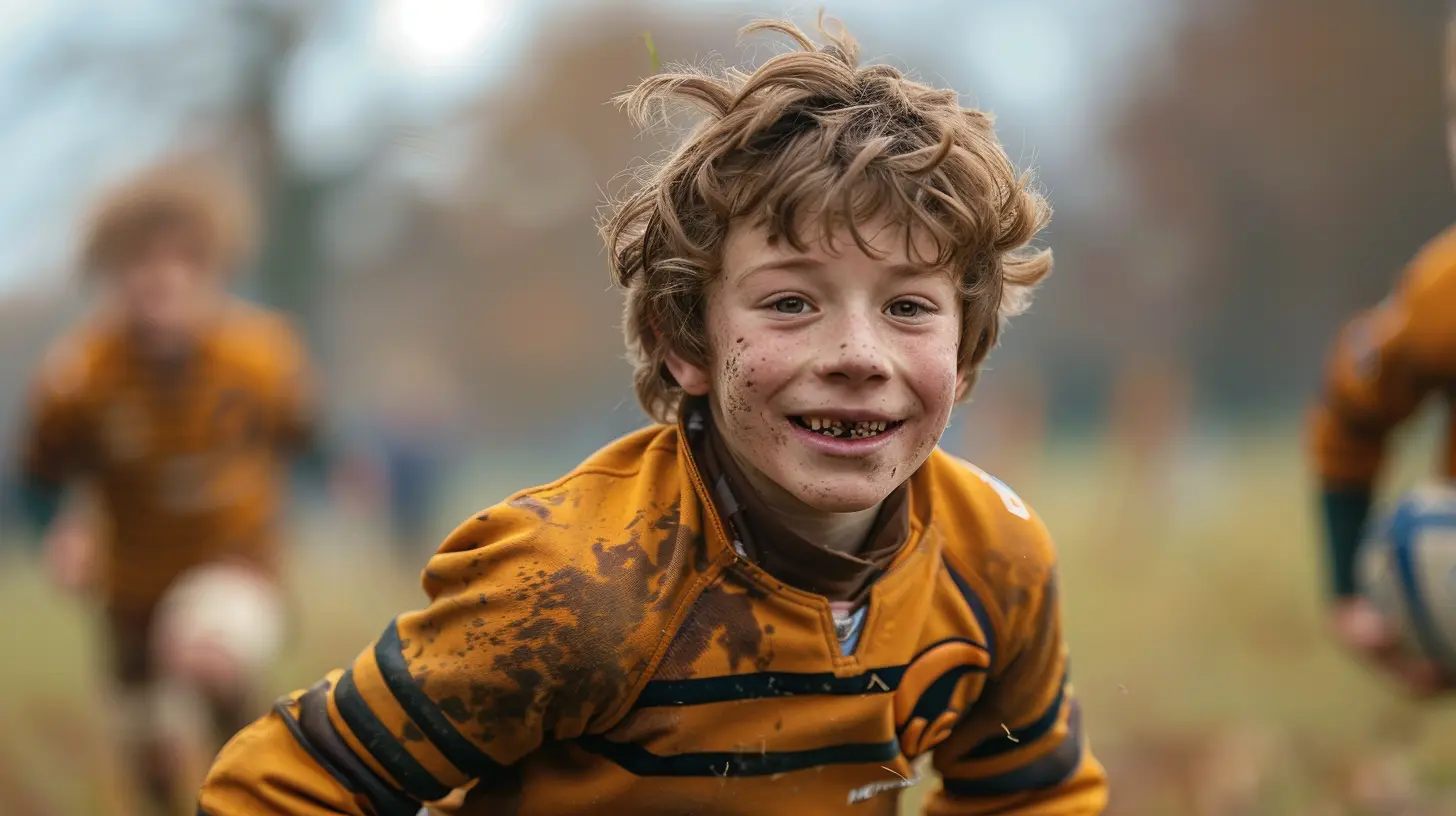The Impact of Youth Rugby Programs: Cultivating the Next Generation
31 May 2025
Rugby isn't just a game—it's a way of life. From weekend scrums in the park to the electric atmosphere of a packed stadium, this sport has a unique ability to unite people. But what about the kids who dream of making their mark on the field? That's where youth rugby programs come in. These initiatives do so much more than just teach kids how to pass and tackle. They shape character, instill discipline, and lay the foundation for a lifetime of camaraderie.
In this article, we’ll dive into the profound impact of youth rugby programs, showing how they help mold the next generation—not just as athletes, but as individuals.

The Importance of Youth Rugby Programs
More Than Just a Game
Youth rugby programs are about more than just winning matches. Sure, scoring tries and lifting trophies is exciting, but the real value lies in the lessons kids take off the field. These programs help young players develop essential life skills like teamwork, communication, and perseverance—qualities that will serve them well even if they never set foot on a professional pitch.Think about it: Rugby is a game of strategy, resilience, and quick thinking. Every match demands players to adapt to changing situations, work together, and never give up. Aren’t these the same skills needed in school, work, and life?
The Role of Rugby in Physical Development
Let’s face it—kids today spend way too much time glued to screens. Youth rugby provides a much-needed alternative, encouraging children to get outside and be active. The sport promotes:- Overall fitness – Rugby is a full-body workout. Running, tackling, and passing build endurance, strength, and agility.
- Motor skill development – The constant movement and hand-eye coordination involved in catching and passing the ball help refine motor skills.
- Injury resilience – Believe it or not, kids who learn proper rugby techniques, such as how to tackle safely, are often less prone to serious injuries compared to those who play other contact sports without proper training.
Playing rugby from a young age isn’t just about building a strong body—it’s about creating a foundation for a healthy lifestyle.

The Social and Emotional Benefits of Rugby
Building Self-Confidence
Ever seen a shy kid transform into a bold, fearless player after just a few months in a rugby program? It happens all the time. There’s something about stepping onto that field, surrounded by teammates who’ve got your back, that boosts confidence like nothing else.Rugby challenges players to push past their limits, to get back up after being knocked down, and to trust their instincts. When kids see themselves improving, their belief in their abilities skyrockets—not just in sports, but in everyday life.
A Sense of Belonging
One of the best things about rugby? The camaraderie. It doesn’t matter who you are, where you come from, or how skilled you are—once you’re part of a team, you belong. The sport fosters deep friendships and a sense of unity that often lasts a lifetime.Many kids struggle to find their place, especially in their teenage years. Rugby programs create a safe, supportive environment where young players feel valued and included. It’s like being part of a second family.
Teaching Respect and Discipline
Rugby is built on respect—respect for teammates, opponents, coaches, and the referees. In a world where tempers can flare easily, rugby teaches young players how to stay disciplined and composed. The sport has a strict code of conduct, and learning to play within these rules molds kids into respectful, well-rounded individuals.
How Youth Rugby Shapes Future Athletes
A Stepping Stone to Professional Success
For those with dreams of playing at the highest level, youth rugby programs are a fantastic starting point. Professional rugby players like Jonny Wilkinson, Richie McCaw, and Siya Kolisi all started in grassroots programs before making their way to the top.These programs provide:
- Fundamental skill development – Teaching young players the basics of passing, tackling, and positioning.
- Exposure to competitive play – Allowing kids to test their skills against peers and improve under pressure.
- Mentorship opportunities – Experienced coaches and former players often guide young athletes, offering valuable advice and motivation.
Even if a player doesn’t go pro, the experiences gained in a youth rugby program can pave the way for scholarships, coaching opportunities, and lifelong involvement in the sport.
The Transition From Youth to Elite Rugby
One of the biggest challenges young athletes face is transitioning from youth-level competition to elite play. Rugby programs that emphasize both skill development and mental toughness prepare players for this leap.Competitive tournaments, strength and conditioning coaching, and exposure to high-level training methods ensure that aspiring professionals are not only physically prepared but mentally equipped to handle the pressures of top-tier rugby.

Challenges in Youth Rugby Programs and How to Overcome Them
While youth rugby offers countless benefits, there are challenges that must be addressed:Accessibility and Affordability
Not every child has access to a rugby program, especially in underprivileged areas. Many families struggle with the costs associated with training, equipment, and travel.Solution: More sponsorships, scholarships, and community-driven programs can help bridge this gap, ensuring that every child gets a shot at playing the game.
Safety Concerns
Rugby is a contact sport, and with that comes concerns about injuries, particularly concussions. Some parents hesitate to let their kids play because of the physical nature of the game.Solution: Proper coaching, emphasis on safe tackling techniques, and strict adherence to concussion protocols can mitigate risks and ensure player safety.
Retaining Young Players
Keeping kids engaged in rugby long-term can be tough, especially with so many other sports and activities vying for their attention.Solution: Making the game fun, encouraging social aspects, and offering clear development pathways can help retain young players. When kids enjoy what they’re doing, they’re more likely to stick with it.
Conclusion
Youth rugby programs are so much more than just training sessions and match days. They shape the next generation, teaching kids resilience, teamwork, and respect while giving them a strong physical and emotional foundation. Whether a young player dreams of going pro or just wants to enjoy the game, the lessons learned on the rugby field will follow them for life.So, if you’re a parent wondering whether to sign your child up for rugby or a coach looking to develop young talent, remember this: rugby isn’t just about the tries and tackles—it’s about building strong, confident, and respectful individuals. And that’s a win worth celebrating.
all images in this post were generated using AI tools
Category:
RugbyAuthor:

Ruben McCloud
Discussion
rate this article
3 comments
Clementine Patel
What an inspiring read! Youth rugby programs are truly shaping future champions—building skills, friendships, and a love for the game!
June 15, 2025 at 10:40 AM

Ruben McCloud
Thank you! I'm glad you found it inspiring. Youth rugby truly does foster invaluable skills and connections!
Hannah Gilbert
Exciting to see young athletes grow through rugby!
June 3, 2025 at 4:49 AM

Ruben McCloud
Thank you! It's inspiring to witness their growth and development through the sport.
Arianth Maddox
Great article! Youth rugby programs are essential for developing skills, teamwork, and resilience in young athletes. Investing in these programs shapes a brighter future for the sport.
May 31, 2025 at 11:03 AM

Ruben McCloud
Thank you for your insightful comment! I completely agree—youth rugby programs are fundamental to fostering essential life skills in young athletes.



